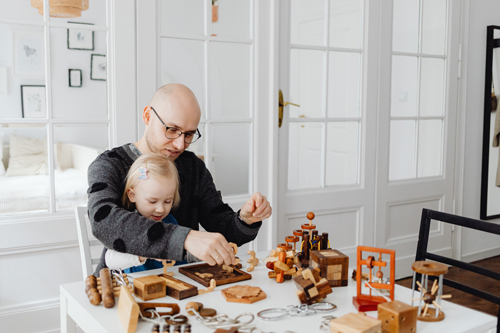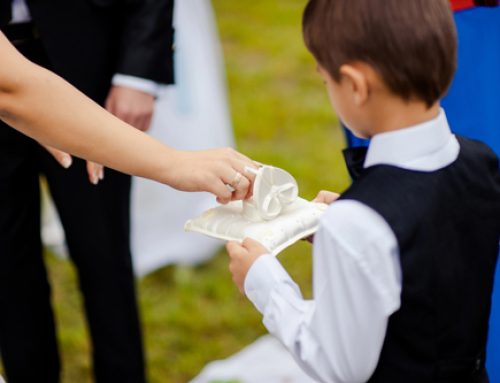How To Prepare For Working With Kids
Those who work with children — whether that be teachers, daycare workers, nannies, tutors, coaches — have a special calling. Many deal with low wages, and they also have the added pressure of raising the next generation. Although working with kids is far from easy, it can certainly be done with the proper preparations.
If you are recently starting a job working with kids, or even if you’re a childcare veteran who is looking to enhance your skills, it’s important to utilize the following physical and mental preparations to set you on the right track.

Physical Preparation
The specific job you have working with children will help determine what your specific physical preparedness will look like. However, whether you become a math tutor or a sports coach, there are some key physical preparations you should do regardless of what position you end up taking.
Here are some ways you can prepare yourself physically for working with children:
- Stretch: Taking the time at the beginning and end of your day to do a proper stretching routine will go a long way toward protecting yourself against acute injuries, reducing overall soreness, and preventing chronic injuries.
- Squats: Doing a short routine of squats with proper form regularly will strengthen your quads, hamstrings, and glute muscles that are used repeatedly when working with children. These exercises will also increase your balance and mobility.
- Practice proper lifting technique: Working with children means you are likely to find yourself lifting things from the ground on a routine basis — a child, a box of heavy toys, etc. To prevent injury and reduce soreness, make sure to understand and practice proper lifting techniques at all times and never attempt to lift anything beyond your ability without help. For lifting children safely, remember the acronym “BACK” (Back straight, Avoid twisting, Close to body, Keep Smooth).
- Prepare to kneel, bend over, and sit on the floor: When working with kids, you’ll often want to be at their level to better empathize and communicate with them. This may take the form of kneeling, bending over, or sitting on the floor — all of which may lead to repetitive stress injuries and soreness. Along with proper bending techniques, you should also practice proper posture when sitting, and utilize a cushioned pad if frequent kneeling is unavoidable.
Personal Health
Working with children can be quite stressful on your body and immune system in several ways. First off, children are highly likely to bring in outside germs and illnesses along with them. To protect yourself against these, you must frequently wash your hands and avoid touching your face.
Along with these germs, children may also carry allergens or substances you may be sensitive to. In addition to educating kids about these sensitivities, be sure to wash your hands frequently.
Unfortunately, frequent hand washing can have the side effect of causing dry, irritated, or even cracked skin. This can be easily avoided by carrying around repairing body lotion or moisturizer to prevent the problem from getting any worse.
Dress and Accessories
Working, and subsequently playing, with kids can be rough business, and you’ll want to make sure that any clothing, shoes, and jewelry you wear is up to the task. You’ll want to reconsider wearing your favorite shoes or most valuable clothing items, as there’s a chance they could get stained, torn, or otherwise permanently damaged.
If you wear a wedding ring, there is a chance that working with kids will lead to it getting scratched or “dinged up.” Tungsten wedding bands or wedding rings will hold up to the trials presented by working with kids incredibly well compared to traditional wedding band materials. You will also want to avoid loose or dangling earrings, necklaces, or bracelets. You might even consider leaving non-sentimental jewelry at home.
You’ll want to keep your comfort at the front of your mind, along with your mobility. Make sure to wear clothing and accessories that you’re able to move freely in for an extended period of time, and shoes that offer support, durability, and are well-fitted. Avoid items that are uncomfortable or clunky, and consider wearing layers of clothing to account for indoor/outdoor temperature shifts, or bringing a pair of shoes to change into/out of on stormy days.
Skills and Traits You Will Need
Beyond any physical preparation you will need to undertake for a job working with children, you will also need a great deal of mental and emotional preparation beforehand. Here are some skills and traits that will help you prepare to work with kids.
Patience and Empathy
One of the most crucial traits you will need to work well with kids is a deep level of patience and empathy. Children tend to do things and act in ways that feel annoying, frustrating, and even confusing to adults.
However, it is important to remember that kids are simply little people. They’re still developing mentally, emotionally, and socially, and are working towards healthy behaviors. Nothing is typically done with malicious intent on their end.
This is why it is vital to approach interactions with children empathetically, especially when their behavior is testing your patience. Having patience and empathy will also help you establish your trustworthiness with the kids you are working with, and could make a bigger difference in a kid’s life.
Enthusiasm
Everyone has bad days from time to time. Whether it is directly related to your job working with children, your personal life outside of work, or all of the above, there will certainly be reasons why you won’t want to put on a brave face while working with children. However, it’s important to compartmentalize these factors. Otherwise, you may unknowingly impact your interactions with children.
Preparedness
Although you’re already doing a lot to prepare for a job working with kids, you should also work on the preparedness skill itself. While you’re most likely preparing a variety of skills, cultivating the ability to quickly and easily respond to situations or questions may be the most vital skill in your toolbelt.
Make sure to set aside time to learn important things like safety and emergency protocols so you know how to react when the occasion arises. No matter the occasion, the children you work with should feel safe coming to you for answers or to guide them, so knowing how to respond or how to find an answer for them is crucial to your role.




Leave A Comment